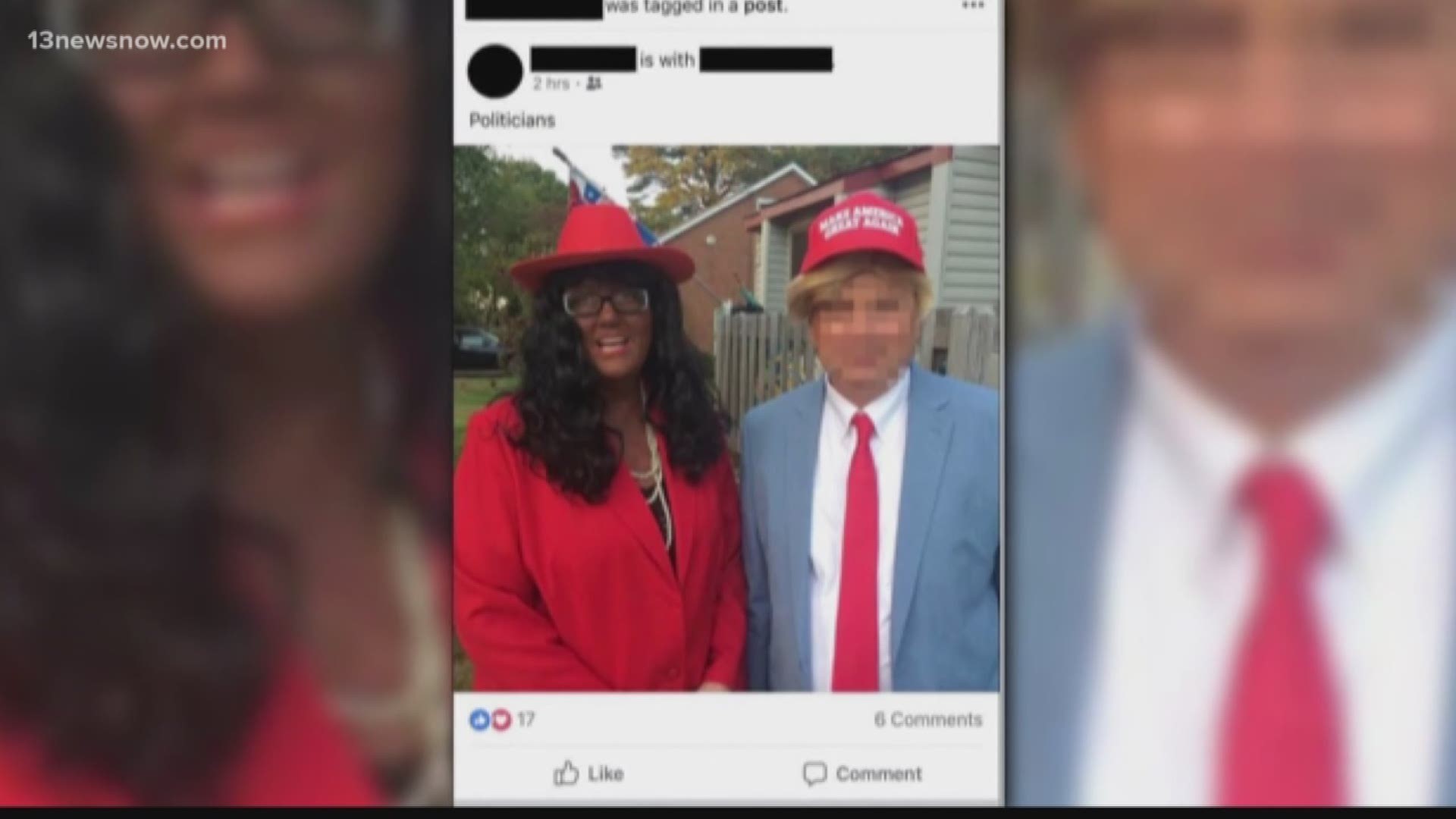NORFOLK, Va. (WVEC) -- A firestorm of criticism and conversation erupted after pictures of a York-Poquoson sheriff's deputy wearing blackface showed up on Facebook.
Jean Browning covered herself with dark makeup, portraying Florida Congresswoman Frederica Wilson for Halloween. The deputy's boyfriend wore a President Donald Trump costume.
The York-James City-Williamsburg Branch of the NAACP said it was "appalled" by the images of Browning. Many other people were, too.
There were others who asked, "What's the big deal?" They thought everybody else was being too sensitive. It was, after all, a costume, just a costume.
Well, here's why people in that first camp consider it a big deal.
Blackface and, specifically, its use in minstrel shows dates back to before the Civil War, to a time when black people in America vastly were considered property and excluded from the rights and opportunities afforded to white Americans.
The exclusion included show business.
You wouldn't find black performers, but you would find perceptions of black culture...brought to audiences by white men in minstrel shows. The men would cover their faces in black, tell stories, sing, and dance. Slavery and plantation life often served as subject matter. The white audiences saw them perform, listening to the men put on dialects, laughing at their antics, thinking they were getting a glimpse of black culture. In reality, what emerged from the often elaborate shows were widespread and long held stereotypes of black Americans that, if we're going to be honest, some people carry to this day.
After the Civil War, black entertainers started to work in minstrel shows, slowly shifting performances away from the subject matter and views of black Americans that had been part of the shows for decades.
The popularity of minstrel shows wound down by the early 20th Century, although it wasn't unusual to see white performers don blackface. One of the most notable performers was Al Jolson.
Decades later, in 1942, the film classic Holiday Inn featured the song Abraham. Bing Crosby and a troupe of cast members wore blackface as they celebrated Abraham Lincoln's birthday, singing about the president. The inn's housekeeper, played by black actress Louise Beavers, joined the singing, asking her children:
When black folks lived in slavery, who was it set the darky free?
The young actress who played Beavers' daughter in the film, responded, "Abraham!" with Beavers telling her, "That's right, child."
York-Poquoson Sheriff Danny Diggs said Wednesday night that Browning is a "kind, caring person, who will do anything for anyone." He added that she was "very sad and remorseful" about the incident.
The take of many who hear about the situation may be: "It's a costume. Get over it." That's easier said than done for countless others who lived with the stereotypes blackface helped create and promulgate or for those who continue to live with the stereotypes.
Regardless of the camp into which you fall -- costume or controversy -- keep the discussion going. It's one worth having.

